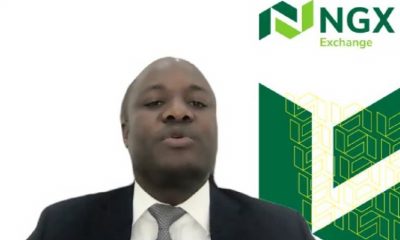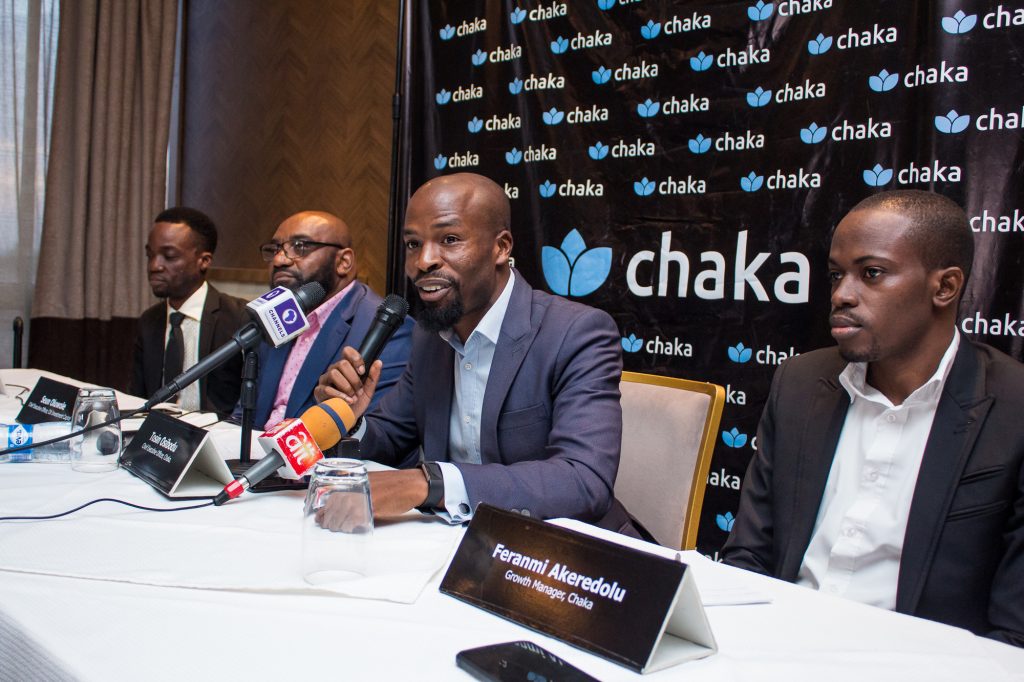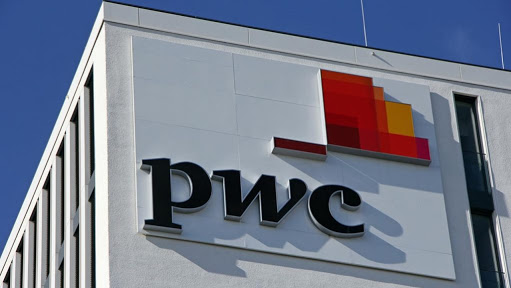Economy
African Capital Markets Shows Significant Decline in 2016—PwC
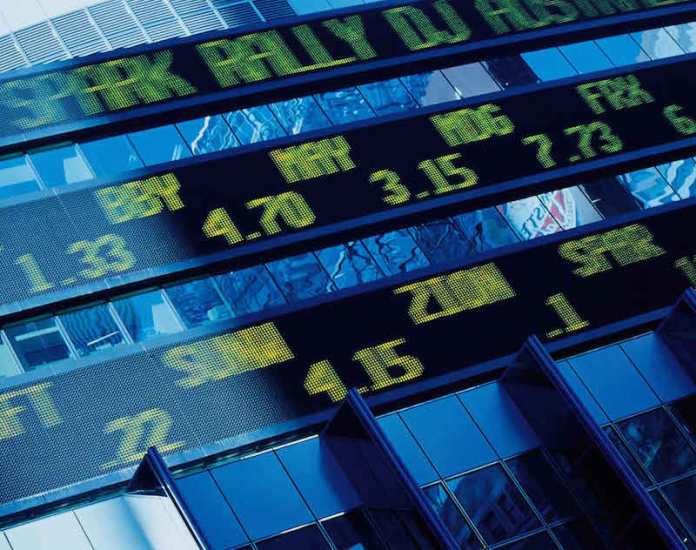
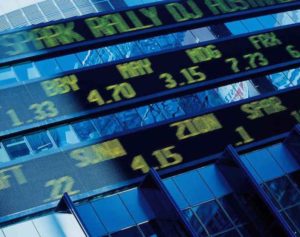
By Dipo Olowookere
Twenty-sixteen marked a challenging year for African equity markets in the wake of lower economic growth and political upheaval around the globe, largely as a result of the US elections cycle and the Brexit vote.
African equity capital markets (ECM) broke a streak of three successive years of growth, recording a decline in overall ECM activity of 28% from 2015 in the number of transactions and 33% from 2015 in terms of capital raised.
PwC issued its 2016 Africa Capital Markets Watch publication today, which analyses equity and debt capital markets transactions that took place between 2012 and 2016 on exchanges throughout Africa, as well as transactions by African companies on international exchanges.
ECM transactions included in the analysis comprise capital raising activities, whether initial public offerings (IPOs) or further offers (FOs), by African companies on exchanges worldwide, as well as those made by non-African companies on African exchanges. Debt capital markets (DCM) transactions analysed include debt funding raised by African companies and public institutions.
Darrell McGraw, PwC Capital Markets Partner based in Lagos, says: “Many African economies, in particular those dependent on resources suffered in a low growth environment, significantly reducing ECM activity, and a continued lack of clarity around foreign exchange risk in Nigeria further discouraged foreign investment.
“Although overall ECM activity decreased in 2016 in terms of both transaction volume and value as compared to 2015, there was a significant increase in ECM activity, particularly IPOs, in the second half of the year, indicating the cautious optimism of issuers and investors as the year progressed.”
Since 2012, there have been 450 African ECM transactions raising a total of $44.9bn, up 8% in terms of capital raised over the previous five year period 2011-2015.
African IPO Market
Overall, $1.5bn was raised in IPO proceeds in 2016, and while 2016 saw a decrease from the prior year, there has been an overall upward trend in IPO activity over the five year period.
Over the past five years there have been 110 IPOs raising $6.5 billion by African companies on exchanges worldwide and non-African companies on African exchanges.
In 2016, capital raised from IPOs by companies listed on the Johannesburg Stock Exchange (JSE) increased by 25% in US dollar terms as compared to 2015, mainly driven by a comparatively stronger rand and three large listings by Dis-Chem, the Liberty Two Degrees real estate investment trust (REIT) and one of South Africa’s largest private equity firms, Ethos. It was also a record year for the JSE’s AltX, which saw the secondary listing of the fledgling Mauritian private equity investor, Universal Partners, generate proceeds of more than five times greater than in 2015.
Capital raised from IPOs by companies on exchanges other than the JSE decreased by 22% as compared to 2015, largely driven by relatively smaller Egyptian IPOs in 2016. IPO activity on the Egyptian Stock Exchange (EGX) decreased significantly – by 72% in terms of value of IPO proceeds – as companies delayed listing plans in anticipation of an improved economic outlook following the August 2016 announcement of a potential stabilisation programme by the IMF and the free float of the Egyptian pound in November 2016.
Elsewhere on the continent, there were some significant increases in IPO capital raised on exchanges in Ghana, Morocco and Botswana compared to 2015, due to partial privatisations of state-owned entities.
Coenraad Richardson, PwC Capital Markets Partner based in Johannesburg, adds: “The JSE retains the leading position in the African capital markets, with capital raised from IPOs by companies on the JSE representing 42% of the total African IPO capital and 34% of the total number of transactions since 2012.” In terms of value over the past five years, the next-largest value of IPO proceeds raised was on the EGX at $1.1 billion, followed by the Nigerian Stock Exchange at $751 million.
On a sector basis, the financial services sector continued to dominate the African IPO market during 2016 with 45% of total value and 55% of total volume, followed by consumer goods and industrials with a total value of 31% and 13% respectively.
African FO market
Over the past five years, there have been 340 FOs raising $38.4 billion on both African and international exchanges. As was the case with the IPO market, FO activity was hit by a significant decrease in terms of transaction volume and value, down 27% and 34% respectively. Andrew Del Boccio, PwC Capital Markets Partner based in Johannesburg, notes: “The decline in FO activity after a period of sustained growth reflects many of the challenges and uncertainties in Africa and around the globe.”
In terms of geography, 85% of FO proceeds in 2016 were raised either by South African companies or by foreign companies listed on the JSE. However, the nature of these FOs shows a mixed landscape–a significant portion of funds were raised for business restructuring or divesture by foreign investors looking to monetise or exit their African investments, or by South African companies seeking to diversify their portfolios via acquisition of assets outside of Africa.
Both during 2016 and over the five-year period, the vast majority of FO activity was from sub-Saharan countries representing 78% and 81% in total FOs volume, respectively, and 96% and 95%, respectively of total FO value.
Between 2012 and 2016, FO capital raised on the JSE represented 87% of total African FO capital raised and 71% of total transaction volume. In terms of movements from 2015, Nigerian FO activity dried up, with no further offers in 2016, mainly as a result of the ongoing recession and exchange rate environment. Tunisia also saw a significant decline in activity based on value of proceeds raised.
On a sector basis, the financial services sector contributed 47% of total FO value, followed by the healthcare sector at 12%.
During the five-year period from 2012, average FO capital raised per transaction of $113 million remained well above the average proceeds raised from IPOs of $59 million, as a number of large, seasoned issuers, such as Naspers, Aspen, Mediclinic and Steinhoff, among others, tapped markets 17 times for proceeds in excess of $500 million; only one IPO, that of Seplat in 2014 exceeded the $500 million threshold.
African debt markets
Debt capital market (DCM) activity, in particular Eurobond activity, represents only a portion of the total debt raised in Africa, with a large component of debt funding sourced from traditional bank finance, other lending arrangements with investors or debt raised in local currency on local exchanges.
Eurobond activity by African corporates continued to decline in 2016, with investment grade and high-yield proceeds from Eurobond issuances falling by 21% to $4.5 billion, and the number of issuances by 53% to just seven, including some large issuances by South African telecommunications provider, MTN, and Nigerian telecommunications infrastructure company, IHS, which raised $800 million in sub-Saharan Africa’s largest-ever high-yield bond. Proceeds from all seven of these 2016 issuances were raised in US dollars.
Domestic debt markets also played a more significant role in the overall DCM story in 2016 than in previous years, particularly in Nigeria, as companies and governments across the continent retreated from risks related to foreign currency funding in 2016 and as global appetite for African debt securities declined.
Del Boccio concludes: “Despite challenging times, we expect to see improved conditions around capital markets activity in 2017, continuing the momentum built in the final two months of 2016, including an increase in ECM activity by companies on the JSE as well as by companies pursuing privatisation plans through the capital markets in Nigeria, Rwanda, Tanzania and the BRVM region.”
Economy
Lokpobiri Begs Lawmakers to Reschedule Oil Revenue Executive Order Probe

By Adedapo Adesanya
A joint National Assembly probe into President Bola Tinubu’s new oil revenue executive order was stalled on Thursday following a request for more time by the Minister of Petroleum Resources, Mr Heineken Lokpobiri.
The hearing was convened to scrutinise the executive order directing that royalty oil, tax oil, profit oil, profit gas and other revenues due to the Federation under various petroleum contracts be paid directly into the Federation Account.
Mr Lokpobiri told lawmakers that although he attended out of respect for parliament, he had been notified of the hearing only a day earlier and had not obtained all the relevant documents needed to defend the policy adequately.
He appealed for the session to be rescheduled.
Co-chairman of the joint committee and Chairman of the Senate Committee on Gas, Mr Agom Jarigbe, put the request to a voice vote, and lawmakers approved the adjournment.
A new date is expected to be communicated to the minister.
The executive order signed last week also scrapped the 30 per cent Frontier Exploration Fund created under the Petroleum Industry Act (PIA) and discontinued the 30 per cent management fee on profit oil and profit gas previously retained by the Nigerian National Petroleum Company (NNPC) Limited.
Anchored on Sections 5 and 44(3) of the Constitution, the presidency said the directive was aimed at safeguarding oil and gas revenues, curbing excessive deductions and restoring the constitutional entitlements of federal, state and local governments to the
However, the order has sparked criticism within the industry, one of which was from the Petroleum and Natural Gas Senior Staff Association of Nigeria (PENGASSAN), whose president, Mr Festus Osifo, called for an immediate withdrawal of the order, warning that it could undermine the PIA and erode investor confidence.
Meanwhile, at another session, the Chairman of the Senate Committee on Finance, Senator Mohammed Sani Musa, disclosed that President Tinubu would soon transmit proposals to amend certain provisions of the PIA to align with current economic realities.
He noted that while many expect the executive order to boost revenue automatically, Nigeria has yet to achieve its desired income levels.
He did not specify which sections of the law would be targeted, but suggested that the drive to enhance revenue generation would necessitate legislative adjustments.
The PIA, signed into law in 2021 by the late ex-President Muhammadu Buhari, overhauled the governance, regulatory and fiscal framework of Nigeria’s oil and gas sector, commercialised the NNPC and restructured revenue-sharing arrangements.
Economy
NGX Group Declares N2 Final Dividend, 1-for-3 Bonus Issue for FY’25

By Aduragbemi Omiyale
Shareholders of Nigerian Exchange (NGX) Group Plc will receive one new share for every three held as of April 10, 2026, as a bonus, according to a proposal from the board.
This is in addition to a final dividend of N2.00 proposed by the board to shareholders for the 2025 fiscal year, which raised the total dividend for the year to N3.00, according to the financial statements of the company filed with NGX Limited.
Last year, NGX Group recorded a sterling performance, with its earnings growing by 36.0 per cent to N22.9 billion from N16.9 billion due to sustained growth across core business segments, improved customer penetration on the back of increased investor activity and rising investor confidence.
The operating profit in the year increased by 44.4 per cent to N11.8 billion, while pre-tax profit jumped to N15.6 billion from N13.6 billion in 2024, with the earnings per share (EPS) at N4.75.
As for its balance sheet, total assets increased to N71.0 billion from N68.0 billion, while shareholders’ equity strengthened to N55.2 billion
The improved debt-to-equity position reflects a conservative capital structure, enhanced solvency profile, and strong retained earnings growth.
“Our 2025 performance demonstrates the resilience of our business model and the effectiveness of disciplined strategic execution. Strong revenue growth, improved operating margins and a strengthened balance sheet reinforce our commitment to delivering sustainable long-term shareholder value.
“The increased dividend and bonus issue reflect the Board’s confidence in the sustainability of our earnings and the robustness of our capital position as we continue to deepen Nigeria’s capital markets.
“We are confident that the momentum that we have built in 2025 will be sustained, given investor confidence in the Nigerian capital market and a pipeline of exciting new listings that will broaden and deepen the market,” the chairman of NGX Group, Mr Umaru Kwairanga, said.
On his part, the chief executive of the organisation, Mr Temi Popoola, said, “We delivered strong top-line growth and enhanced profitability in 2025 despite macroeconomic headwinds.
“Our 36 per cent core revenue growth, improved operating efficiency and successful deleveraging have strengthened our capital base and financial flexibility, supporting the increased dividend and bonus issuance.
“As regulatory standards evolve, including the recent upward review of minimum capital requirements by the Securities and Exchange Commission (SEC), our robust balance sheet positions us to meet new thresholds seamlessly while continuing to invest in liquidity expansion, product innovation and market infrastructure to build a resilient, globally competitive exchange group.”
Economy
FG Targets Credit Access For 50% Workers By 2030

By Adedapo Adesanya
The Vice President, Mr Kashim Shettima, inaugurated the Board of the Nigerian Consumer Credit Corporation (CREDICORP) and gave a 50 per cent access target for workers, saying consumer credit was critical to Nigeria’s ambition of becoming a one-trillion-dollar economy by 2030.
According to him, President Bola Tinubu established the CREDICORP to build a trusted credit infrastructure, provide catalytic capital to lower borrowing costs, and help Nigerians overcome long-standing cultural resistance to credit.
Speaking on Thursday in Abuja when he inaugurated the board on behalf of the President, the Vice President, in a statement by his spokesman, Mr Stanley Nkwocha, said that the quality of life of Nigerians cannot improve without closing the gap between access to capital and human dignity.
“A civil servant who earns honestly does not have to chase sudden wealth just to buy a vehicle, or save for ten years to buy one. A young professional should not remain in darkness simply because solar power must be paid for all at once,” the Vice President said.
VP Shettima disclosed that in just one year of operations, CREDICORP has disbursed over ₦37 billion in consumer credit to more than 200,000 Nigerians, with over half of them accessing formal credit for the first time.
The Vice President said the organisation was specifically tasked with building credit infrastructure to bridge the trust gap between lenders and borrowers, providing wholesale capital and credit guarantees through its portfolio company.
“Ultimately, these critical jobs of CREDICORP will enable access to consumer credit to at least 50 per cent of working Nigerians by 2030,” he said.
The Vice President explained that the new board’s role was not ceremonial as they are custodians of the organisation’s mission, adding that the long-term strength of the institution would depend on their “vigilance, integrity, sacrifice, and commitment.”
He directed Board members to uphold Public Service Rules, the Board Charter, and all applicable governance frameworks, warning that accountability and stewardship of public resources were non-negotiable.
The Chairman of CREDICORP, Mr Aderemi Abdul, expressed appreciation to President Tinubu for his vision behind the formation of CREDICORP and for the confidence reposed in them, noting that the establishment of the corporation marked an important step towards strengthening the nation’s financial architecture.
He assured President Tinubu that the board understands its responsibility and will guide the institution to deliver meaningful benefits to Nigerians.
For his part, Mr Uzoma Nwagba, Managing Director/CEO of CREDICORP, recalled watching President Tinubu say 20 years ago that consumer credit is one of the major tools that will improve the lives of Nigerians.
He noted that over the past 18 months, the institution has benefited more than 200,000 Nigerians, including students.
He assured that the presidential vision behind CREDICORP would not be taken lightly, as the team considers their appointments a unique, once-in-a-lifetime opportunity.
Other members of the board inaugurated include Mrs Olanike Kolawole, Executive Director, Operations; Mrs Aisha Abdullahi, Executive Director, Credit and Portfolio Management; Mr Armstrong Ume-Takang (MD, MoFI), Representative of MoFI; Mrs Bisoye Coke-Odusote (DG, NIMC), Representative of NIMC; and Mr Mohammed Naziru Abbas, Representative of FMITI.
Others are Mr Marvin Nadah, Representative of FCCPC; Mrs Chinonyelum Ndidi, Representative of the Federal Ministry of Finance; Mr Mohammed Abbas Jega, Independent Director; and Mrs Toyin Adeniji, Independent Director.
-

 Feature/OPED6 years ago
Feature/OPED6 years agoDavos was Different this year
-
Travel/Tourism10 years ago
Lagos Seals Western Lodge Hotel In Ikorodu
-

 Showbiz3 years ago
Showbiz3 years agoEstranged Lover Releases Videos of Empress Njamah Bathing
-

 Banking8 years ago
Banking8 years agoSort Codes of GTBank Branches in Nigeria
-

 Economy3 years ago
Economy3 years agoSubsidy Removal: CNG at N130 Per Litre Cheaper Than Petrol—IPMAN
-

 Banking3 years ago
Banking3 years agoSort Codes of UBA Branches in Nigeria
-

 Banking3 years ago
Banking3 years agoFirst Bank Announces Planned Downtime
-

 Sports3 years ago
Sports3 years agoHighest Paid Nigerian Footballer – How Much Do Nigerian Footballers Earn


